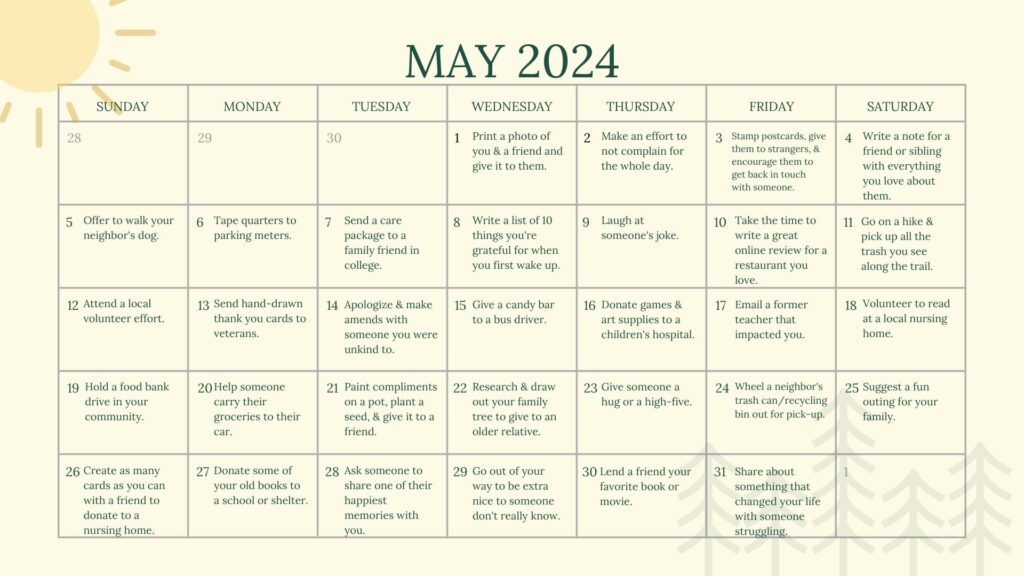Welcome Session 3 Campers!
We’re so excited to welcome our Session 3 campers to camp today! This session we have campers from Canada, Mexico, Spain, the United Kingdom, and from twelve states outside of California (Arizona, Colorado, Georgia, Idaho, Massachusetts, Maryland, Nevada, New York, Oregon, Texas, Washington, and Wyoming)!
Of these campers…
69 are 1st time campers at GAC
233 are returning campers
73 are 3-year campers
29 are 5-year campers
and 1 10-year camper!
Session 3 Outpost & Events Schedule
There’s always something going on at camp, whether that’s a cabin theme day, a backpacking trip or a visit to Shaver Island! Check out the outpost schedule below to see where each cabin is going this session.
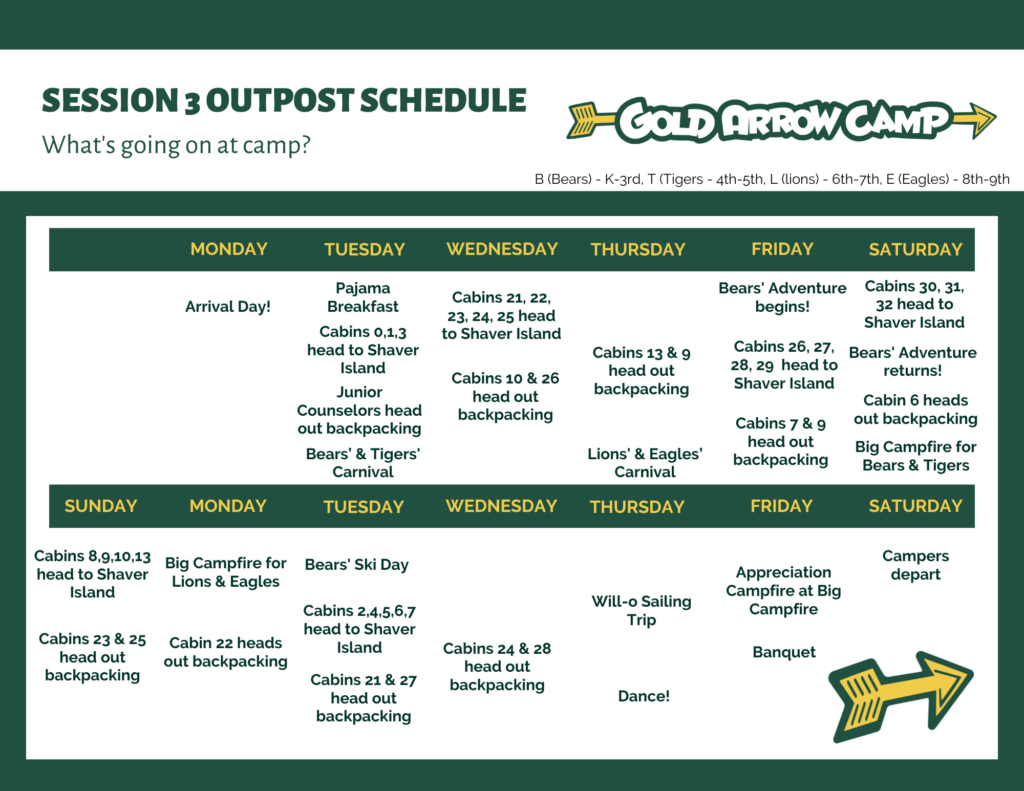
Welcome Session 2 Campers!
We’re so excited to welcome our Session 2 campers to camp! This session we have campers here from all over the United States, and even Spain, Singapore, United Kingdom, and Mexico! Of these campers…
85 are 1st time campers at GAC
201 are returning campers
50 are 3-year campers
24 are 5-year campers
and 5 are 10-year campers!
We are so excited for the next two weeks that will be spent hiking, singing songs, waterskiing, campfires and so much more! Make sure to keep up with everything going on at camp through our News section and the Campanion App!
What are we eating this week? Check out the week’s menu!
Session 2 Outpost & Events Schedule
There’s always something going on at camp, whether that’s a cabin theme day, a backpacking trip or a visit to Shaver Island! Check out the outpost schedule below to see where each cabin is going this session.
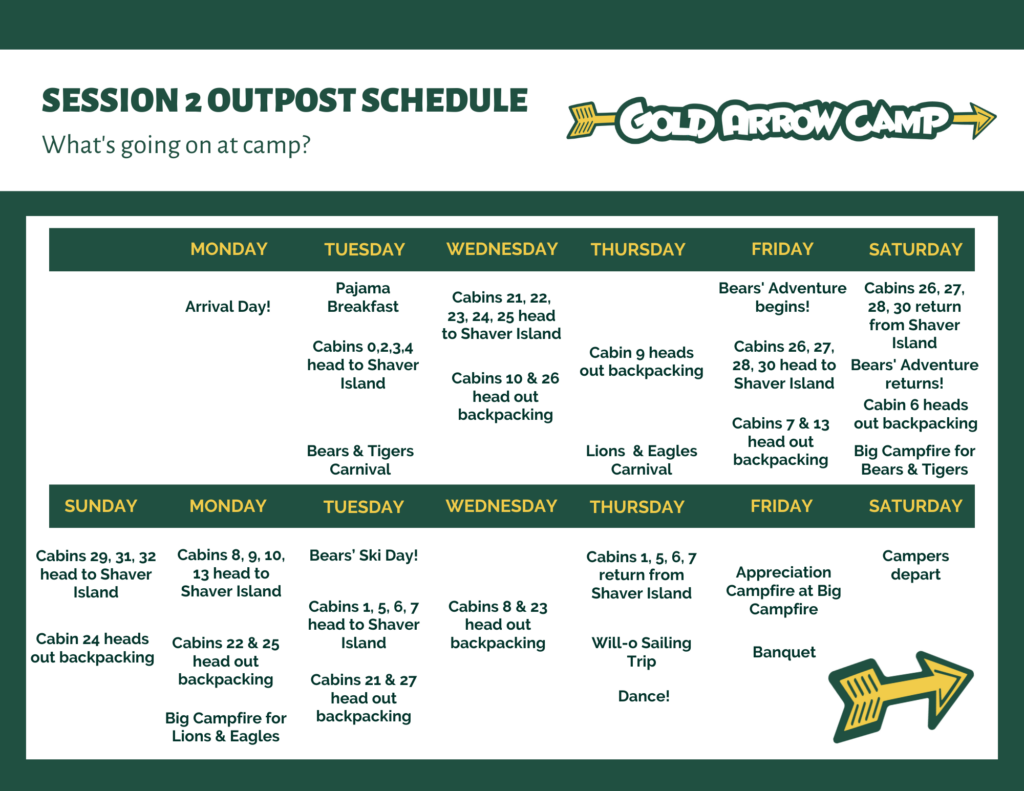
July Kindness Calendar
July 16th is Camp Kindness Day, so we are getting you ready with our July Kindness Calendar! We encourage you to show kindness to someone every day and we came up with a few ways to help you do that! Click here to download the printable version.
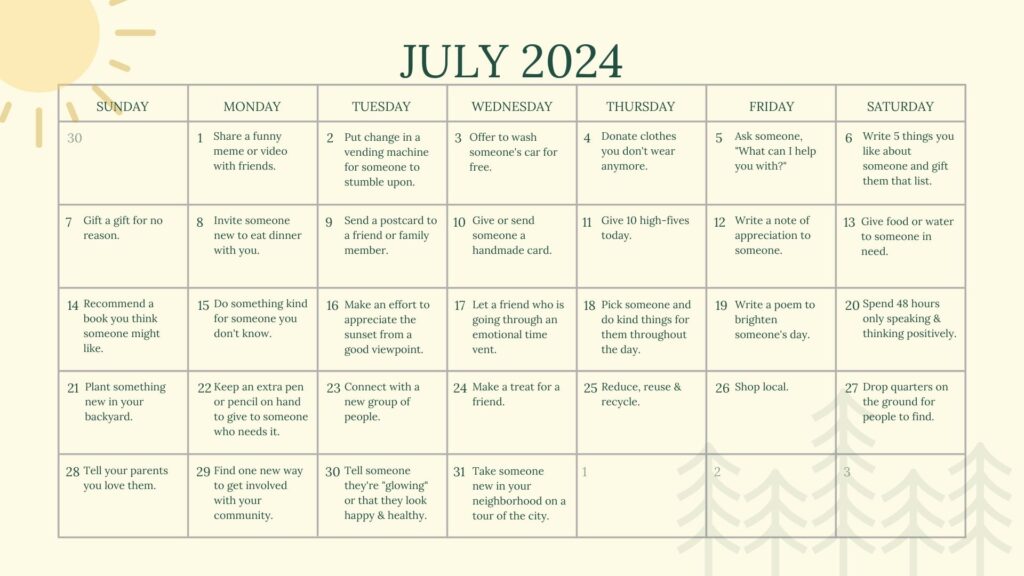
Session 1 Outpost & Events Schedule
There’s always something going on at camp, whether that’s Jers-day Thursday, a backpacking trip or a visit to Shaver Island! Check out the outpost schedule below to see where each cabin is going this session.
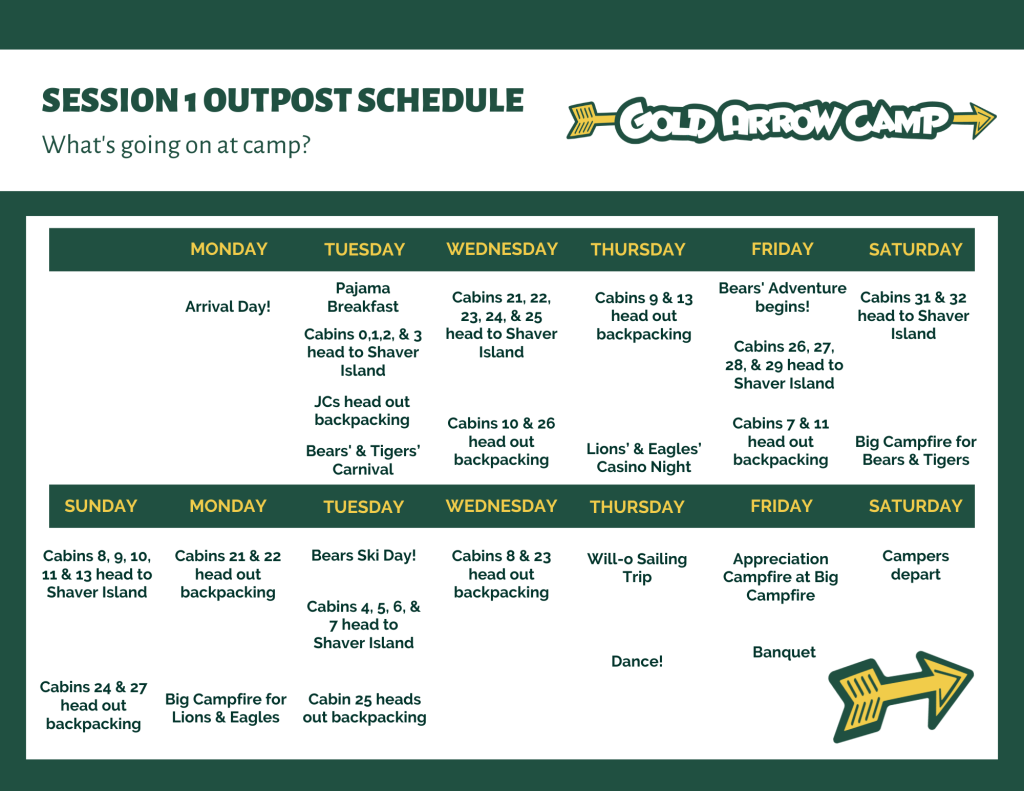
Welcome Session 1 Campers!
Session 1 starts now! We’re so excited to welcome our Session 1 campers to camp today! This session we have campers coming from as far away as Mexico, Spain, and the United Arab Emirates as well as representing many states! Of these campers…
96 are 1st-time campers at GAC
180 are returning campers
64 are 3-year campers
12 are 5-year campers
and 4 are 10-year campers!
We are so excited for the next 2 weeks that will be spent hiking, singing songs, waterskiing, campfires and so much more! Make sure to keep up with everything going on at camp through our News section and the Campanion App!
What are we eating this week? Check out the Session 1, Week 1 Menu
Session 1 Plus – Shaver Week Has Begun!
Yesterday, we welcomed an awesome group of campers for Session 1+, which starts with a week at our Shaver Island Outpost camp. Among this group of campers, there are ten 6-year campers, two 5-year campers, and one 10-year camper. Four campers are from outside of California.
They’re going to enjoy an action-packed week of waterskiing, wakeboarding, and kneeboarding on our island outpost in the middle of Shaver Lake. They will get to sleep under the stars after spending fun-filled days on the lake! How lucky they are!
Want to learn more about June Specialty? Click here.
June Kindness Calendar
Happy June and the start of GAC 2024! Here are some great ideas of how we can be kind to others this month. Enjoy! You can download a printable version here!
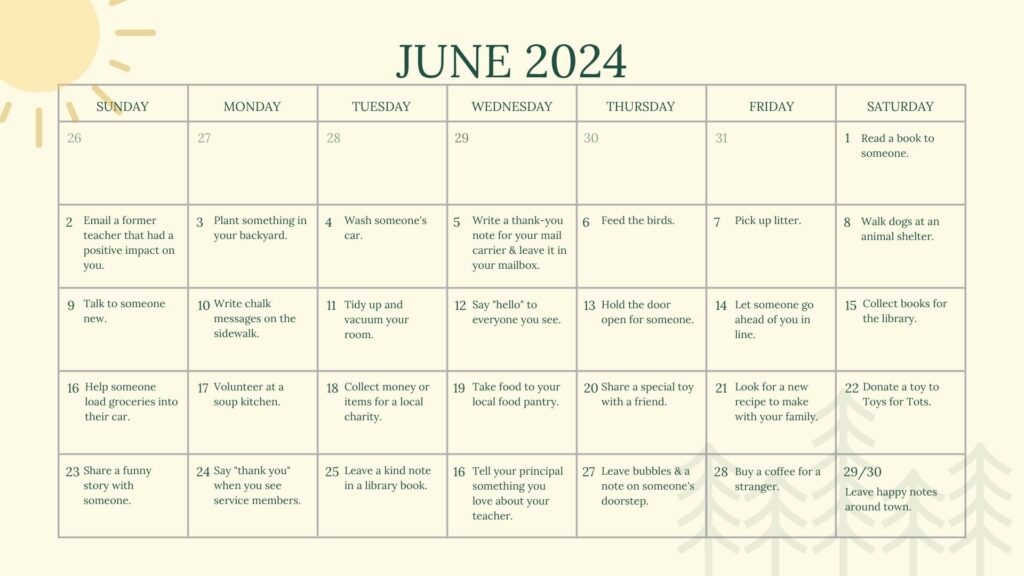
May Kindness Calendar
Hello everyone! It’s a new month so that means new opportunities to show kindness to those around us! Click here to download the printable version.